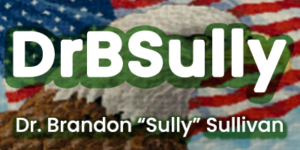This study examines the network dynamics of far-right extremists linked to the anti-tax movement in the United States engaging in financial crime schemes from 1990 to 2010. Data for the study are drawn from the United States Extremist Financial Crime Database (EFCDB), an open source relational database focusing on financial schemes by political and religious extremists, including far-right extremist tax protesters. Mixed method, multilevel, longitudinal network analysis is used to examine the structure and characteristics of individual criminal perpetrators participating in financial schemes. After examining both lone offender and multi-suspect schemes and different motivations for engaging in financial crimes, cohesive subgroups in a two-mode network are identified and analyzed over time. Subsequent qualitative analysis of connections between different cohesive subgroups revealed important themes underlying the changing composition of the network centered around four large anti-tax organizations. This study enhances the current understanding of dynamic motivations, behaviors, and network structures of financial crime schemes involving anti-tax extremist criminals and their non-extremist collaborators.
show lessAN EXAMINATION OF THE AMERICAN FAR-RIGHT’S ANTI-TAX FINANCIAL CRIMES
show moreLittle attention has been paid to ideologically motivated tax protesters who use frivolous legal arguments as moral or legal justification for committing tax fraud and related financial crimes. These crimes have defrauded private citizens and governments and are associated with violent far-right extremism, negatively impacting public safety and stability. Using data from the U.S. Extremist Financial Crime Database, we provide an exploratory, descriptive analysis of the composition and motivation of financial crime schemes associated with the American far-right extremist anti-tax movement. Our innovative open-source database permits systematic empirical research into connections among tax avoidance, anti-tax, and anti-government belief and related criminal behavior, which is necessary for the advancement of scholarship on the causes and consequences of these frauds and the development of sound intervention and prevention policies and practices.
show lessFINANCIAL TERROR: FINANCIAL CRIME SCHEMES INVOLVING EXTREMISTS LINKED TO THE AMERICAN FAR-RIGHT AND AL QA’IDA AND AFFILIATED MOVEMENTS
Handbook on the Criminology of Terrorism
show moreThis book chapter focuses exclusively on these crimes and reviews findings from an ongoing research effort identifying crime committed by extremists in the United States. We provide an overview of financial crime and material support schemes committed or attempted by supporters of al-Qaeda and affiliated movements (AQAM) and supporters of the far-right extremist movement inside the United States since 1990.
show lessFINANCIAL CRIME AND MATERIAL SUPPORT SCHEMES PERPETRATED BY SUPPORTERS OF AL-QA’DA AND AFFILIATED MOVEMENTS (AQAM) IN THE UNITED STATES (1990 – 2014)
show moreThis research examines the financial and material support schemes linked to al-Qa’ida and affiliated movements (AQAM) in the United States between 1990 and June 2014 using data from the U.S. Extremist Crime Database (ECDB).
show lessFINANCIAL CRIMES PERPETRATED BY FAR-RIGHT EXTREMISTS IN THE UNITED STATES (1990 – 2013)
show moreA descriptive analysis of financial crime data from the Extremist Crime Database (ECDB) reveals that far-right political or religious extremists in the United States engaged in various types of financial crimes, mostly tax avoidance, and were largely affiliated with the sovereign citizen movement. While the majority of schemes were ideologically motivated, many contained elements of profit or greed motivations and involved a large number of non-extremist collaborators.
show lessTHE NEXUS BETWEEN TERRORISM AND PRODUCT COUNTERFEITING IN THE UNITED STATES
Research Brief
show moreTerrorists use a wide variety of methods to fund their operations, obtain profits and carry out ideologically driven goals. Terrorist organisations have increasingly been linked to product counterfeiting crimes, but evidence for this connection is mostly anecdotal and speculative, lacking systematic empirical evaluation. This study mines open-source data to capture known product counterfeiting schemes linked to known extremists in the United States since 1990 and provides an overview of both the schemes and the individual suspects involved in these crimes. We uncovered ten product counterfeiting schemes linked to terrorism, while the vast majority of suspects involved are non-extremist collaborators motivated by profit, not extremist ideology. These findings indicate the need for policies focusing on criminal networks broadly, expanding beyond restrictive efforts only targeting terrorists.
show less
